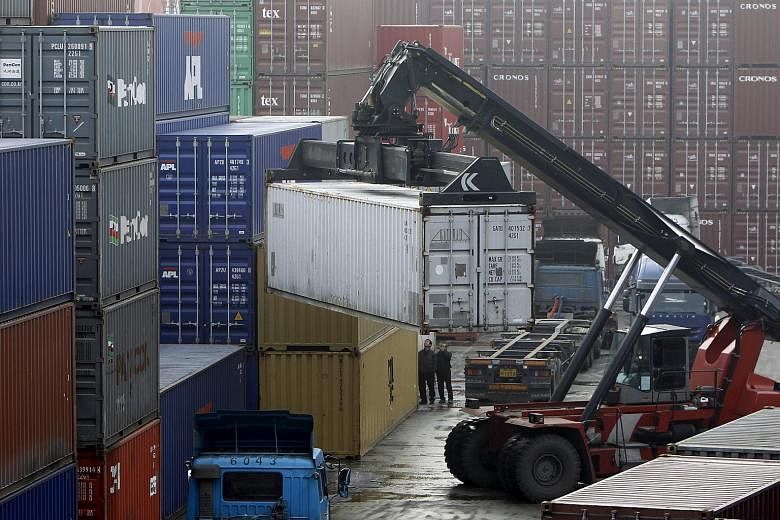SEOUL (REUTERS) - South Korean exports in January suffered their worst downturn since the depths of the global financial crisis in 2009, keeping pressure for more rate cuts to stoke a fragile economic recovery amid cooling growth in China and slackening global demand.
Exports in January fell a worse-than-expected 18.5 per cent from a year earlier, extending a 14.1 per cent slump seen in December and marking the 13th straight month of declines.
It was the biggest drop since August 2009 when shipments tumbled 20.9 per cent.
South Korea is the world's seventh-largest exporter and the first major exporting economy in the world to report trade figures every month, providing a quick health check on global trade and the economy.
Analysts said the grim data may force the Bank of Korea into easing policy once again, although few expect it to act at the next meeting scheduled for Feb 16.
"Export performance was poor due to a cooling global economy and declining prices for exports. It's been like this since the fourth quarter and we'll see this kind of low through March and April," said Mr Lee Sang-jae, chief economist at Eugene Investment & Securities.
"Shipments being this weak means a recovery in consumption is urgently needed. If you look at the economy as a whole, this might boost the need for policy easing."
The Bank of Korea's base rate is currently at a record-low 1.50 per cent. It last eased policy in June 2015.
The data from the Ministry of Trade, Industry and Energy also showed imports slid 20.1 per cent on-year, compared to a 19.2 per cent fall in December. That produced a trade surplus of US$5.3 billion (S$7.56 billion), which was the smallest surplus since November 2014.
Analysts had predicted a 10.8 per cent on-year fall in exports for January, while imports were expected to have dropped 15.1 per cent.
The Trade Ministry attributed the export decline to fewer working days in January compared to a year ago, as well as due to a decline in ship exports.
Sluggishness in global demand, especially China, and falling prices for key export goods also contributed to the sharp drop, it said.
The average export value per working day stood at US$1.63 billion in January, compared with a revised US$1.77 billion in December, Thomson Reuters calculations show.
The Trade Ministry will provide a breakdown on the export data by sector and destination later in the day.

